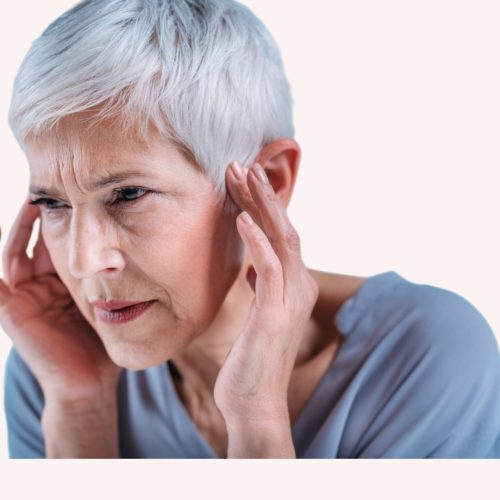Vancouver WA and Portland OR
Temporomandibular Joint Dysfunction (also called TMJ/TMD) has far-reaching effects. The most common symptoms is pain – which may begin in your teeth, spread to the jaw joints and radiate to the head in the form of headaches and down to the neck and shoulders. However, there is a far less common symptom of TMJ/TMD that may occur in some individuals. Tinnitus, also known as ringing in the ears, can be a result of TMJ/TMD. Learn more about tinnitus, and how TMJ Dentist Dr. Priya Mistry could help solve the mystery behind your chronic pain and ringing ears.

What is tinnitus?
Perhaps you have never heard of this disorder before. But you may remember a very popular singer, Barbra Streisand, announced some years back that she suffered from tinnitus. In fact, there are many other famous Hollywood stars that suffer from this disorder.
Tinnitus is best described as a continuous ringing noise in one or both ears. It affects nearly 15% of adults and is more common in older individuals. It can be caused by frequent ear infections, excessive earwax, or injuries to the nerves that serve the ears, head, or neck.
Tinnitus symptoms may include:
- Buzzing
- Humming
- Whirring
- Hissing
- Thumping
- Whistling
- Sizzling
Although these symptoms may come and go between one ear or the other, it is common for tinnitus to become a chronic condition.
The problem with tinnitus
Tinnitus is not necessarily a dangerous condition, although it can negatively impact your quality of life. The constant buzzing or ringing sound in your ear can interfere with your ability to hear and may cause emotional distress because the sound never really shuts off. With tinnitus, you never really feel like you’re in the quiet, which can invoke anxiety or depression. Tinnitus could lead to sleep disorders because of the constant noise. Tinnitus may also cause hearing loss or worsen existing hearing problems.
How is tinnitus related to temporal mandibular joint dysfunction?
Running through the jaw joint is the trigeminal nerve which is one of the body’s most significant sensory pathways. The trigeminal nerve provides sensory input and output from the spine, around the skull, through the jaw joints, and into the lower jaw. The trigeminal nerve is in close proximity to the ear and damage to the trigeminal nerve could lead to tinnitus. TMJ dysfunction causes microtrauma to the jaw joints, which could ultimately impact the trigeminal nerve, and lead to ringing in the ears. Individuals that suffer from TMJ/TMD and that experience tinnitus may also complain of feeling fullness or stuffiness in their ears that is not relieved with allergy or cold medicines.
What should I do if I have tinnitus?
Tinnitus will not go away on its own. If your tinnitus is ENTIRELY due to TMJ/TMD, there is a chance it can improve with treatment. Having said that, tinnitus is the ONE symptom that does not respond predictably to TMJ/TMD treatment. Dr. Mistry provides TMJ therapies that aim to increase blood flow to the joint, decrease inflammation, and stabilize the bite which relieves uneven pressure on the jaw joints. With her modalities of treatment, Dr. Mistry celebrates a 90% success rate with all symptoms except tinnitus. There is no guarantee tinnitus will improve with her treatment, but it may.
Tinnitus Treatment in Vancouver, WA, - Near Portland, OR
If you suspect that you have TMJ/TMD or experience symptoms related to tinnitus, we encourage you to schedule a consultation with TMJ Dentist Dr. Priya Mistry (The TMJ Doc) by calling (503) 255-8293.
